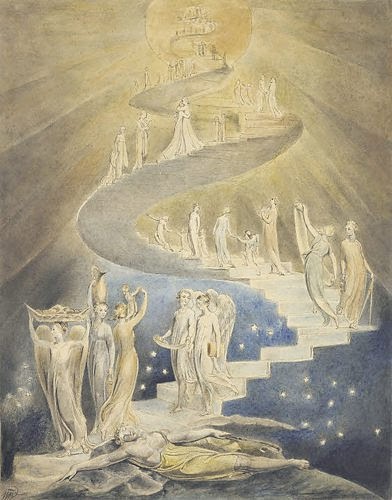When viewed through Pain —
More fair — because impossible
That any gain —
The Mountain — at a given distance —
In Amber — lies —
Approached — the Amber flits — a little —
And That's — the Skies —
F539 (1863) J572
This poem continues the dialectic between pleasure ("Delight") and pain that she explored in the previous one.
Each of the two stanzas examines perceptions from a distance. Through the lens of pain, delight becomes something beautifully rendered as if it were a painting. It is "More fair" because it seems unattainable. Distant mountains bask in an amber glow (and Dickinson is partial to amber, using it to suggest beauty in twenty-four poems. Viewed more closely, however, the glow is seen to be not some radiant quality of the mountain itself but simply a trick of the skies. Up close the amber "flits", revealing its ephemeral quality. It is illusory rather than real.
Dickinson employs an interesting variation on the ballad meter, alternating iambic tetrameter with iambic dimeter: four feet alternating with two feet (rather than four alternating with three). The effect is to give more punch to the dimeter lines. "And That's – the Skies –" can almost be read as a punch line.
 |
| William Louis Sonntag, "VIew in the White Mountains" 1888 |
Typically mountains seem blue-ish in the distance unless it is sunset or sunrise. Dickinson didn't travel much but she was well read, was interested in art, and listened to travelers. White Mountain art was extremely popular throughout her lifetime and, like artists from the Hudson River school, the artists often clad the hills and mountains of New Hampshire in an amber glow.
Among the notable artists painting the White Mountains at the time were Albert Bierstadt, Thomas Cole, Asher Durand, Winslow Homer, George Inness, John Frederick Kensett, and Benjamin Champney. No doubt Dickinson would have seen some of their work.





